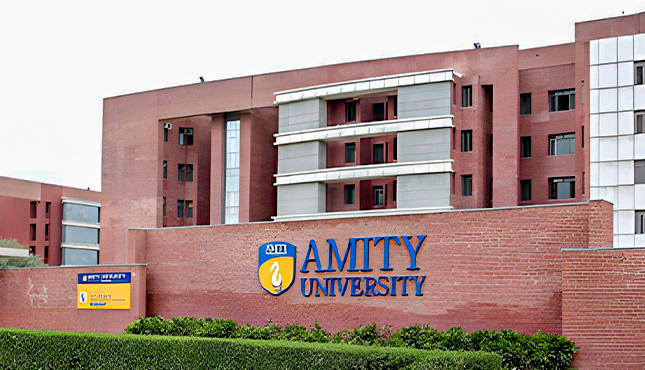
Introduction
Enter the political arena with our education correspondent, Alex Insight. As we navigate the intricate landscape of classroom policies, Alex sheds light on the perspectives of Republican Presidential candidates. Get to know Alex’s background and expertise, setting the stage for an insightful exploration of the educational landscape.
Education policy has become a central issue in the 2024 Republican presidential primary. From debates over school choice and federal funding to hot-button topics like critical race theory and transgender issues, each GOP contender brings a unique vision for America’s schools. Voters want clarity on how these policies will shape K–12 and higher education, teacher accountability, and family empowerment. This guide outlines the Republican presidential candidates’ views on education, helping families, teachers, and engaged citizens understand where each candidate stands on the future of learning in the United States.
Donald Trump: Returning Control to Parents and States
1. School Choice and Vouchers
Former President Donald Trump champions expanding school choice through federal vouchers. He proposes a $5 billion annual grant program to help low-income families use public funds at private or charter schools, arguing that competition will raise standards across the board.
2. Curriculum and Standards
Trump supports local control over curricula and opposes federal mandates like Common Core. He backs legislation to ban critical race theory and limit discussions of gender identity in K–12 classrooms, calling these topics divisive.
3. Higher Education
On colleges, Trump has criticized “woke campuses” and promised to cut federal funding from universities that censor conservative viewpoints. He favors simplifying the FAFSA and expanding access to vocational training and apprenticeships.
Ron DeSantis: Conservative Curriculum and Civics Focus
1. Banning Critical Race Theory
Florida Governor Ron DeSantis signed laws prohibiting critical race theory or any instruction suggesting that individuals are inherently oppressive due to race. He argues schools should emphasize American exceptionalism and patriotic civics education.
2. School Choice Expansion
DeSantis champions education savings accounts (ESAs) over traditional vouchers. His model allows parents to use state-allocated funds for private school tuition, tutoring, or therapies, asserting ESAs offer more flexibility than vouchers.
3. Teacher Accountability
He supports statewide teacher evaluations based on student performance and classroom observations. DeSantis backed pay raises for Florida teachers tied to student achievement gains and opposes tenure rules that protect underperforming educators.
Nikki Haley: Empowering Local Decision-Makers
1. Decentralized Curriculum
Former South Carolina Governor Nikki Haley emphasizes local control over school content. She opposes Washington mandates, believing districts and parents know best what should be taught in their communities.
2. Support for Charter Schools
Haley endorses charters as laboratories of innovation. She would increase federal grants for replication of high-performing charter networks while ensuring equitable access for underserved students.
3. Career and Technical Education
She advocates expanding STEM and vocational programs, partnering with businesses to design industry-aligned courses. Haley envisions a workforce-ready generation with skills matched to local labor market needs.
Tim Scott: Character Development and Workforce Readiness
1. Moral and Character Education
Senator Tim Scott calls for integrating character education—teaching honesty, perseverance, and respect—into school curricula. He proposes federal grants for programs that reinforce civic values and leadership skills.
2. Apprenticeships and Dual Enrollment
Scott promotes dual enrollment programs allowing high-schoolers to earn college credit or industry certifications. He supports public-private partnerships to scale apprenticeship opportunities in trades and technology sectors.
3. Accountability and Transparency
He backs national reporting of school performance metrics—graduation rates, literacy scores, college matriculation—to help parents make informed choices and drive school improvement.
Vivek Ramaswamy: Innovation and Deregulation
1. Tech-Driven Learning
Entrepreneur Vivek Ramaswamy envisions leveraging technology—AI tutors, personalized learning platforms—to reduce teacher workload and tailor instruction to each student’s pace and interests.
2. Reducing Federal Footprint
He argues the Department of Education should be abolished, with funds redirected to states and families. Ramaswamy sees federal involvement as bureaucratic and inefficient, stifling local innovation.
3. Parental Rights
He champions “parental bill of rights” laws to give parents veto power over curricula and school policies, especially around sex education and discussions of race and gender.
Chris Christie: Standardized Testing and Accountability
1. Enhanced Testing Regime
Former New Jersey Governor Chris Christie supports more rigorous standardized testing to measure student progress and hold schools accountable. He believes clear benchmarks drive improvement and transparency.
2. Federal Support for Turnaround Schools
Christie proposes federal grants targeted at underperforming schools to fund intensive intervention—extended school days, tutoring, and leadership changes.
3. Balancing Discipline and Support
He backs zero-tolerance for violent behavior but pairs it with social-emotional learning programs and mental health resources to address root causes of misconduct.
Mike Pence: Faith-Based Initiatives and Homeschooling Rights
1. Supporting Parental Choice
In his Indiana governorship, Mike Pence expanded school voucher programs for private, faith-based schools. He views vouchers as tools to empower families and protect religious freedom in education.
2. Homeschooling Protections
Pence supports minimal regulation of homeschooling families. He calls for federal guidelines to safeguard homeschoolers’ rights to design their own curricula and access public extracurricular programs.
3. School Safety and Values
He emphasizes safe schools through improved mental health screenings and infrastructure upgrades. Pence also advocates for retaining traditional values in public-school assemblies and events.
Common Themes and Divergences
Across the GOP field, several key themes recur:
- School Choice Expansion: Nearly all candidates support vouchers, ESAs, or charter funding, signaling a unified shift toward family-directed education spending.
- Local Control: A consensus rejects federal curriculum mandates, favoring decisions by states, districts, or parents.
- Opposition to Critical Race Theory: Banning or limiting certain social-justice topics appears across Republican platforms.
- Career Readiness: Many candidates emphasize vocational training, apprenticeships, and STEM to boost competitiveness.
- Parental Rights: From veto power over content to homeschooling freedoms, parental involvement is a central pillar of GOP education policy.
However, candidates diverge on federal involvement—some, like DeSantis and Scott, accept targeted federal grants, while Ramaswamy and Haley call for minimal or no federal role. Similarly, views on standardized testing and moral education reflect personal ideologies and governance experiences.
How These Policies Impact Students and Families

Advantages
- Customized Learning Paths: ESAs and charters let families tailor education to student strengths.
- Increased Competition: Choice models aim to elevate underperforming schools through market dynamics.
- Workforce Alignment: Expanded vocational programs prepare students for real-world jobs sooner.
Concerns
- Funding Shifts: Voucher expansion may drain resources from public schools, impacting underserved students.
- Regulatory Gaps: Minimal oversight can lead to inconsistent educational quality across private providers.
- Equity Challenges: Access to choice programs often favors families with time and resources to navigate applications.
The effectiveness of these policies hinges on careful design—ensuring choice enhances, rather than undermines, equitable educational opportunities.
Conclusion
As we conclude this exploration of Republican Presidential candidates’ views on education, reflect on the diverse approaches presented. Recognize the potential impact each candidate could have on the educational landscape, influencing policies that shape the future of our classrooms. Stay informed, as the political decisions made today will mold the learning environments for generations to come.










